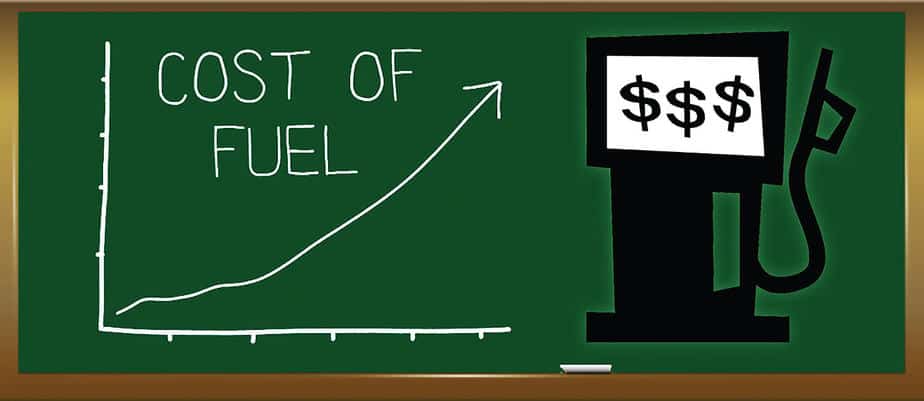
Petrol prices in India have increased by 15 per cent in the past 12 months, and 23 per cent in the past five years. Politicians don’t often protest against food inflation, or promise price reduction of life-saving drugs or increase in minimum wages. But political outrage over increase in fuel prices is very common. The political concern over fuel prices has little to do with the fact that Indians spend 5.7 per cent of their monthly income on petrol. They actually spend much higher proportions on housing and education (food: 52 per cent, rent: 12.1 per cent and education: 3.5 per cent). But the fact that there is a certain amount of control at the Central level in the calibration of oil prices excites those on the side of the Opposition.
Historical Price Trends
India is a net importer of oil and the volume of it has risen in the past five years.
Domestic oil prices should rise when international prices go up and vice versa. But that’s not always the case due to the Centre’s partial regulation. When India purchased oil at $98.17/barrel in 2015, for example, the domestic price was pegged at R73.6/l. In 2018, however, when the purchase price fell to $70.2/barrel, the domestic price was even higher at R77.5/l.
The following table shows that corresponding decline in per barrel purchase price of oil was not passed on to consumers.
The domestic oil prices came down by 14.2 per cent in 2015 when international prices slipped by 38.6 per cent. But no subsequent decline in purchase price was passed on to consumers, the government instead used it to fund the fiscal deficit. Many experts believe it to be prudent economics although its political wisdom may be questioned.
Notwithstanding the price hikes, it would be unfair to conclude that the Modi government never ever passed the decline in prices to the consumers. Domestic oil prices increased by 13.8 per cent in 2018 when international prices went up by 45.3 per cent. Clearly, the incumbent has not ignored the power of perception of fuel prices on politics.
India is not the only one
In the recent past, international oil prices have witnessed an upward swing, which has impacted domestic prices in all countries that are net importers of oil. Indonesia, Brazil, South Africa and China are some examples. A quick glance at the list of the world’s fastest-growing economies reveals that these nations, too, have a similar domestic oil price regime.
One must note that fuel price volatility is here to stay. Like any imported commodity, domestic prices of fuel will be subject to the price in international markets and it is beyond reasonable economic wisdom to expect the government to bear incremental price change.
Moreover, with an increase in economic activity, it is only natural that per-capita energy consumption will move northwards. Keeping in mind the political vulnerability of the issue, one cannot deny that it is imperative to explore a long-term solution-oriented approach.
It is rather unfair on the electorate when the government exercises discretion to use gains from a decline in purchase prices to repair its fiscal shortcomings instead of passing the gains to end-consumers. At the same time, let us not be ignorant of the fact that fuel consumption is skewed towards the higher rungs of the social set-up and any subsidies extended towards affordable fuel pricing is eventually going to benefit a limited section of the population.
Co-author: Kannan Kumar, Associate Fellow, Pahle India Foundation.
As per the Economic Survey 2015-16, the well-off in India receive an implicit subsidy of more than R1 trillion. Aviation turbine fuel is taxed at 8 per cent, while petrol/diesel is taxed at nearly 55 per cent by both the Centre and the states. As tempting as it may be for the politicians to throw open a #FuelChallenge, let us be pragmatic and not forget that tax on fuel (R242,691 lakh crore of income for the centre and R166,378 lakh crore for the State governments) eventually funds either sides of politics.
Delhi hosted what organisers describe as the world’s first player auction in golf, launching ‘72…
An elderly woman recalls how her six-year-old granddaughter lay bleeding after a speeding car hit…
Municipal Corporation of Delhi plans a unified policy enabling RWAs to adopt and maintain parks…
A 17-year-old boy allegedly died by suicide after jumping before a moving train at Uttam…
Delhi High Court grants bail to 26-year-old Thar driver accused of mowing down two in…
Two Rohini men arrested for fatally stabbing one person and injuring another during a robbery…